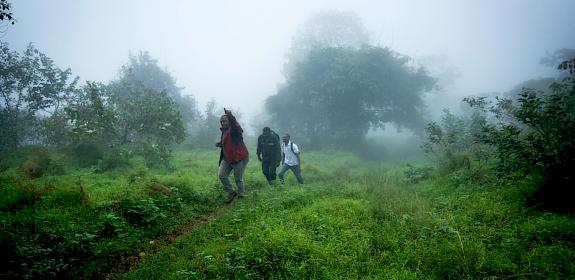Uganda hosts 6th annual forum on illegal timber trade
Kampala, Uganda, 21st June 2018—This week, Uganda played host to the 6th Annual East Africa Timber Trade Stakeholders’ Forum jointly hosted by WWF Uganda and Uganda’s Forestry Sector Support Department under the Ministry of Water and Environment.
The theme for the forum held between 19th June and 20th June 2018 was the Role of Regional Economic Commissions (RECs) in the Convention on International Trade in Endangered Species of Wild Fauna and Flora (CITES) and Timber Trade.
Around 30 senior forestry officials from Uganda, Kenya, Mozambique, Madagascar and Zanzibar, and a representative from the East African Community (EAC) attended.
The Forum built on earlier support by WWF and TRAFFIC to assist member states under the Zanzibar Declaration to develop and implement mechanisms to deter illegality in the timber trade in East Africa.
Illegal timber trade is a critical issue in the region: it undermines good governance, the rule of law, and undermines local and national economies through depriving local communities, law-abiding traders, and governments of legitimate income.
The issue is therefore of high interest in the East African Community (EAC) and the Southern African Development Community (SADC), and participants took the opportunity to examine regional mechanisms that would see effective implementation of CITES in dealing with seized stockpiles of timber.
The Forum focused on strengthening the implementation of CITES by the region’s forest authorities in preparation for the next Conference of the Parties (CoP) to CITES in Sri Lanka slated for 23 May - 03 June 2019, including defining the roles of EAC and SADC on CITES issues related to forests, sharing of information and tools among the region’s forest agencies and relevant stakeholders, and strengthening linkages between government and civil society.
Dr. Mary Gorettie Kitutu Kimono, Ugandan Minister for Water and Environment (MWE), urged participants at the Forum to investigate how the Democratic Republic of the Congo (DRC) and South Sudan could become part of this important regional process under the auspices of SADC and EAC.
I am also aware that from Steering Committee of the Zanzibar Declaration the key question on the table is currently how to finance the implementation of the advanced measures at national level to deliver the aspiration of the commitments under the Declaration
Dr. Mary Gorettie Kitutu Kimono, Ugandan Minister for Water and Environment
Dr. Kimono called for a regional declaration by transport companies both surface and marine on their commitment to transporting only legal products.
“These market based approaches are expected to encourage legal trade across borders in the region and beyond, with a great potential to raise export earnings and improve the export balance,” she added.
Mr. Bob Kazungu, Senior Forest Officer with Uganda’s Forestry Sector Support Department, called for governments to commit funds to facilitate implementation of agreed actions under the Zanzibar Declaration and noted Uganda’s commitments to do so.
Participants also called on the EAC and SADC to support member states on a number of issues raised at the Forum, including collaboration on CITES issues, developing a common system in monitoring forestry resources and harmonisation of taxation issues on forestry resources.
Dismas Mwikila, climate change adaptation specialist with the EAC, said the EAC has developed a forestry policy and strategy in collaboration with the Eastern Africa Regional Forest Programme of WWF Tanzania Country Office aimed at protecting and enhancing the quality of the regional forestry resources for the benefit of its present and future generations.
The East Africa timber Stakeholders’ Forum was jointly established by WWF and TRAFFIC in 2013 with the initial aim to validate research findings and current approaches in tackling the region’s illegal timber trade. Within two years, the forum grew to involve the participation of government forestry officials from Madagascar, Mozambique, Kenya, Tanzania, Uganda and Zanzibar given the need to address challenges of growing intra-regional trade in timber.
In 2015, the Forum provided the outlet for the Zanzibar Declaration on Illegal Trade in Timber and Forest and was signed by country representatives at the World Forestry Congress in Durban, South Africa.
Notes:
This year’s Forum was jointly organized by TRAFFIC and WWF’s Regional Forest Programme with financial support from WWF-UK, WWF-Sweden and WWF-Finland.
WWF

WWF is an independent conservation organization, with over 30 million supporters and a global network active in over 100 countries. WWF's mission is to stop the degradation of the Earth's natural environment and to build a future in which humans live in harmony with nature, by conserving the world's biological diversity, ensuring that the use of renewable natural resources is sustainable, and promoting the reduction of pollution and wasteful consumption. Visit www.panda.org/news for the latest news and media resources and follow us on Twitter @WWF_media.
Convention on International Trade in Endangered Species of Wild Fauna and Flora (CITES)

The Convention on International Trade in Endangered Species of Wild Fauna and Flora, is an international agreement between governments that aims to ensure that international trade in specimens of wild animals and plants does not threaten their survival. Find out more here.




